In Iraq, refugees and asylum-seekers in possession of their UNHCR certificate and government issued residency documents, have access to public services such as healthcare and education, and they can pursue livelihood opportunities.
In line with the UNHCR Iraq’s Multi-Year Strategy 2025-2029, UNHCR seeks to further support this inclusion over the coming years, working closely with government and local authorities to expand access by refugees and asylum-seekers to other public services.
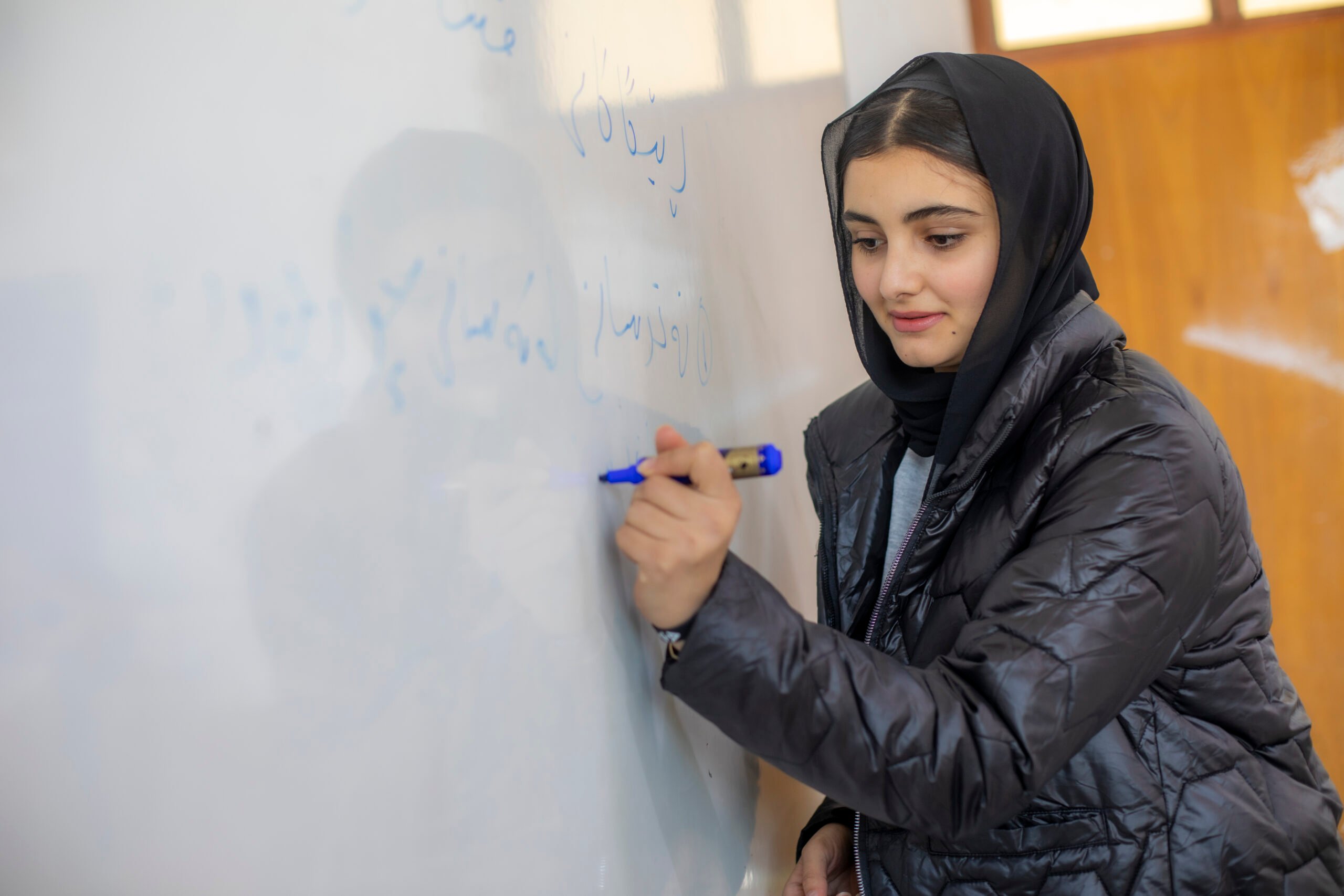
The Refugee Education Integration Policy in the Kurdistan Region of Iraq
At the start of the Syrian crisis, the Ministry of Education of the Kurdistan Regional Government administered and managed a parallel education system for Syrian refugees. This system featured a specific curriculum and learning materials taught in Arabic by Syrian refugee teachers in refugee-only schools.
Following a decision by the Council of Minister of the Kurdistan region of Iraq in 2021, the Refugee Education Integration Policy (REIP) was officially launched in 2022, by the Ministry of Education of the Kurdistan Regional Government. It aims to advance refugee inclusion in the public education system. This represented a significant milestone in advancing the inclusion of refugees in the national education system.
The Refugee Education Integration Policy was first implemented in the 2022-2023 academic year for grades 1-4, supported by UNHCR, UNICEF and education partners, and was subsequently extended to include grade 5 for the 2023-2024 academic year and grade 6 for the 2024-2025 academic year. In December 2023, at the Global Refugee Forum, the Kurdistan Region of Iraq pledged to ensure that the REIP will be implemented incrementally for grades 5 to 12 by 2030.
A total of 55,000 Syrian refugee children are enrolled in public schools in the Kurdistan region of Iraq for the 2024-2025 academic year, representing 74 per cent of the total Syrian school-aged refugee population.77 per cent are enrolled in basic education in grades 1-9, while 35 per cent are enrolled at upper-secondary level in grades 10-12.
In a landmark move, the Kurdistan Regional Government has also recognised the qualifications of 700 refugee teachers and officially hired them as lecturers in public schools. These refugee teachers are included in the payroll system and guaranteed the same salary as national teachers.
Including refugee children in public schools benefits both refugee and local communities as it gives refugee children access to public quality and inclusive education, reduces the need for costly measures to sustain parallel refugee schooling and fosters social cohesion. Moreover, certification obtained through Iraq’s public education system helps in shaping the future of refugee youth, including upon return when conditions become conducive to do so. Refugee inclusion in public schools also paves the way for their enhanced economic inclusion, improving their ability to pursue productive and meaningful lives and contribute to the host community.
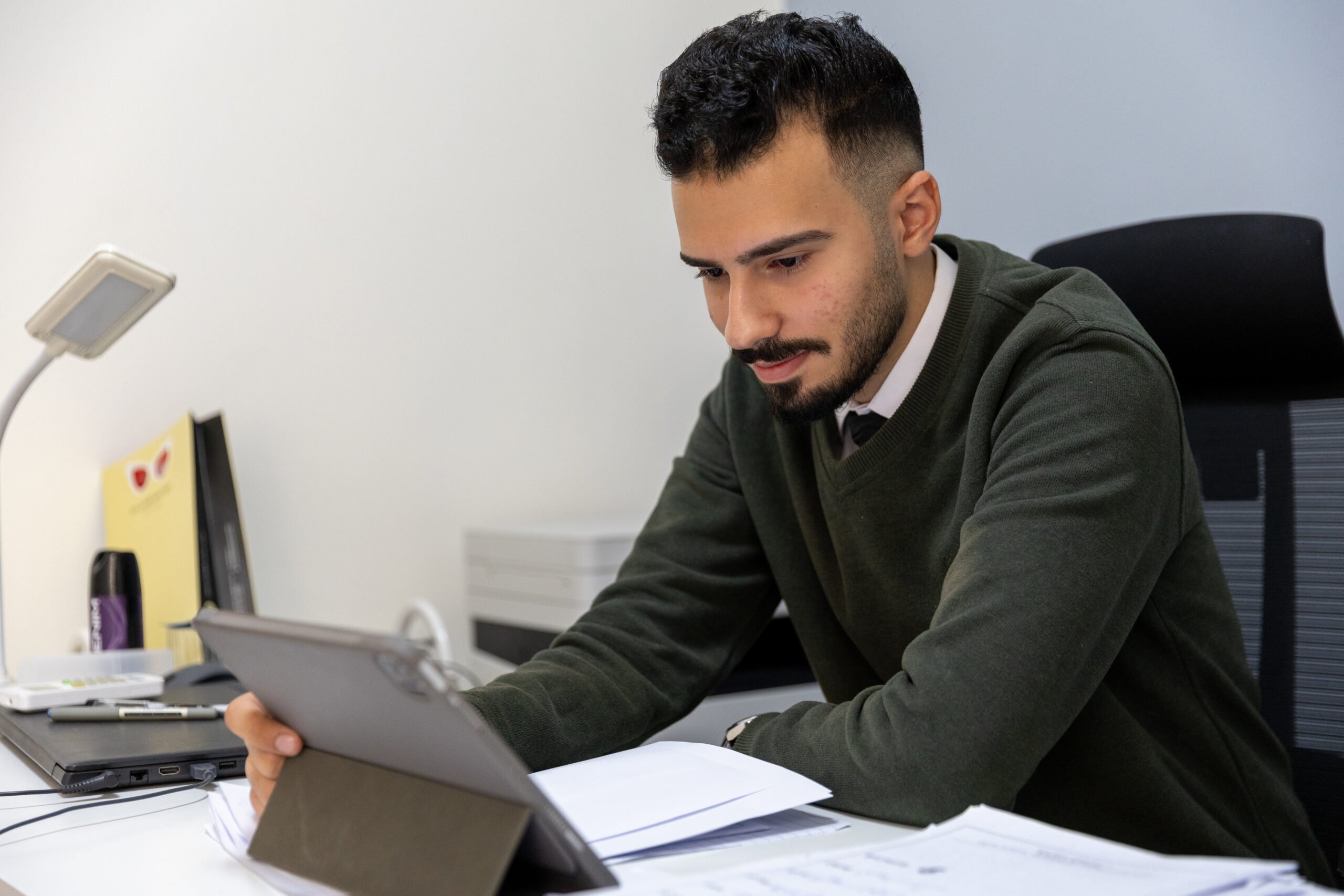
DAFI Scholarship
UNHCR supports refugee higher education through the DAFI (Albert Einstein German Academic Refugee Initiative) tertiary scholarship programme. The DAFI scholarship offers qualified refugee students the opportunity to earn an undergraduate degree in Iraq that enables them to develop skills and achieve qualifications that allow them to become change-makers who can lead in identifying solutions to the challenges that affect them and their communities. The scholarship covers a range of costs, including tuition, fees, study materials, food, transportation, accommodation and other expenses.
Through the dedicated support of the Government of Germany, along with the support of the Government of Denmark, as well as other private partners and foundations, the programme has supported over 26,300 young refugees around the world to undertake tertiary studies since 1992.
For the academic year 2024-2025, UNHCR is supporting 93 refugee students in higher education through the DAFI scholarship. In total, since 2016, 438 refugee students have been supported by UNHCR to attend university in Iraq through the programme.
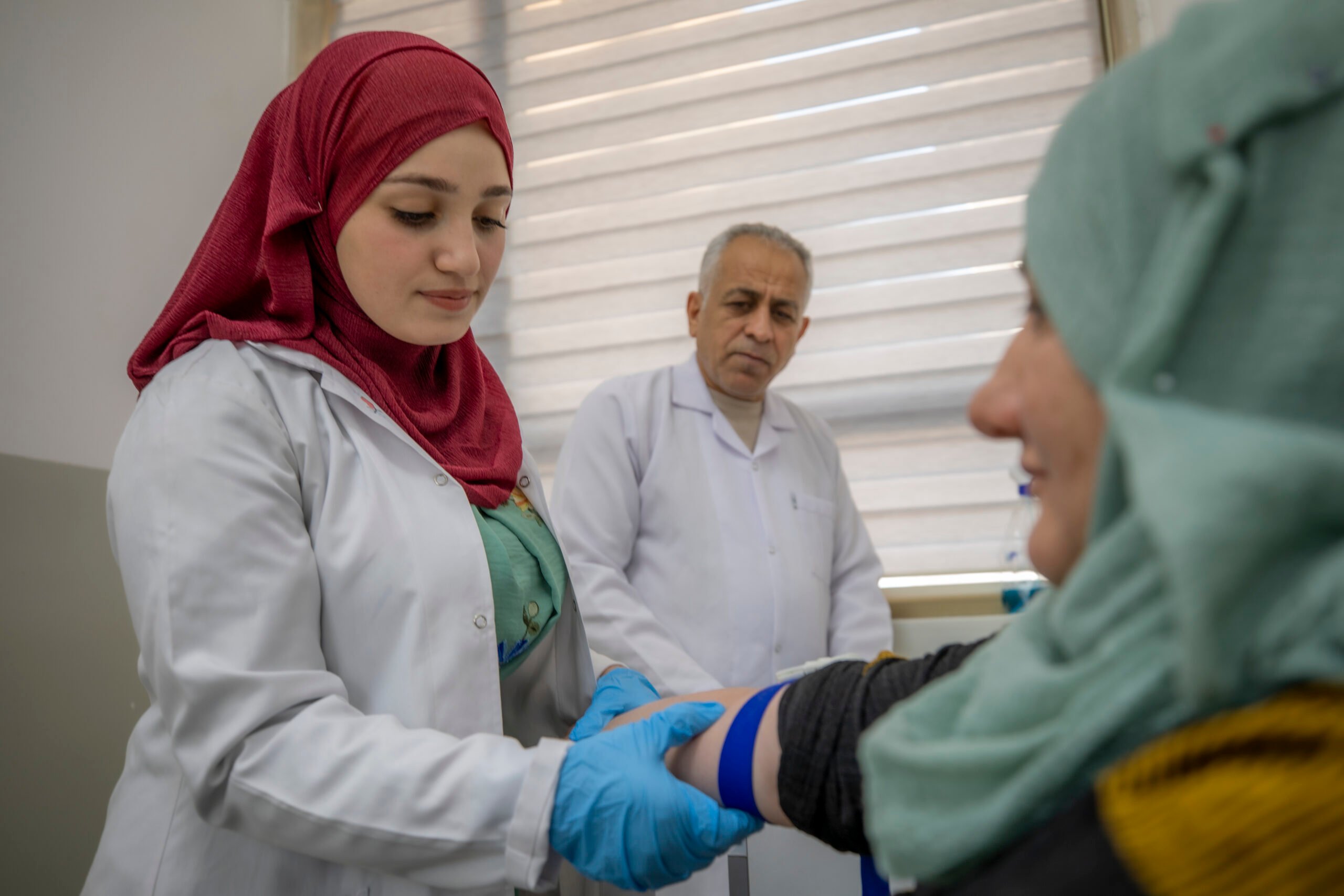
Health
UNHCR supports the Directorates of Health in the Kurdistan Region of Iraq to provide healthcare services for refugees as part of the approach to support the full inclusion of refugees into the public healthcare system.
Since 2017, UNHCR has constructed four primary healthcare clinics in communities hosting large numbers of refugees, including those neighbouring refugee camps. This has led to the closure of separate health clinics in refugee camps, as refugees now have access to primary health care through public clinics. This process concluded by the end of 2024, with the closure the camp-based primary healthcare centres in Domiz 1 and 2, Darashakran, Gawilan, and Qushtapa refugee camps.
Moving forward, UNHCR will continue to work closely with Directorates of Health to run public primary health services which are accessible to all populations, including refugees. This includes supplying medicines and other medical equipment to health centres serving refugee populations. UNHCR will also support, where necessary, upskilling of medical and healthcare staff.
Read more about refugee doctors working in the Iraqi public health system.
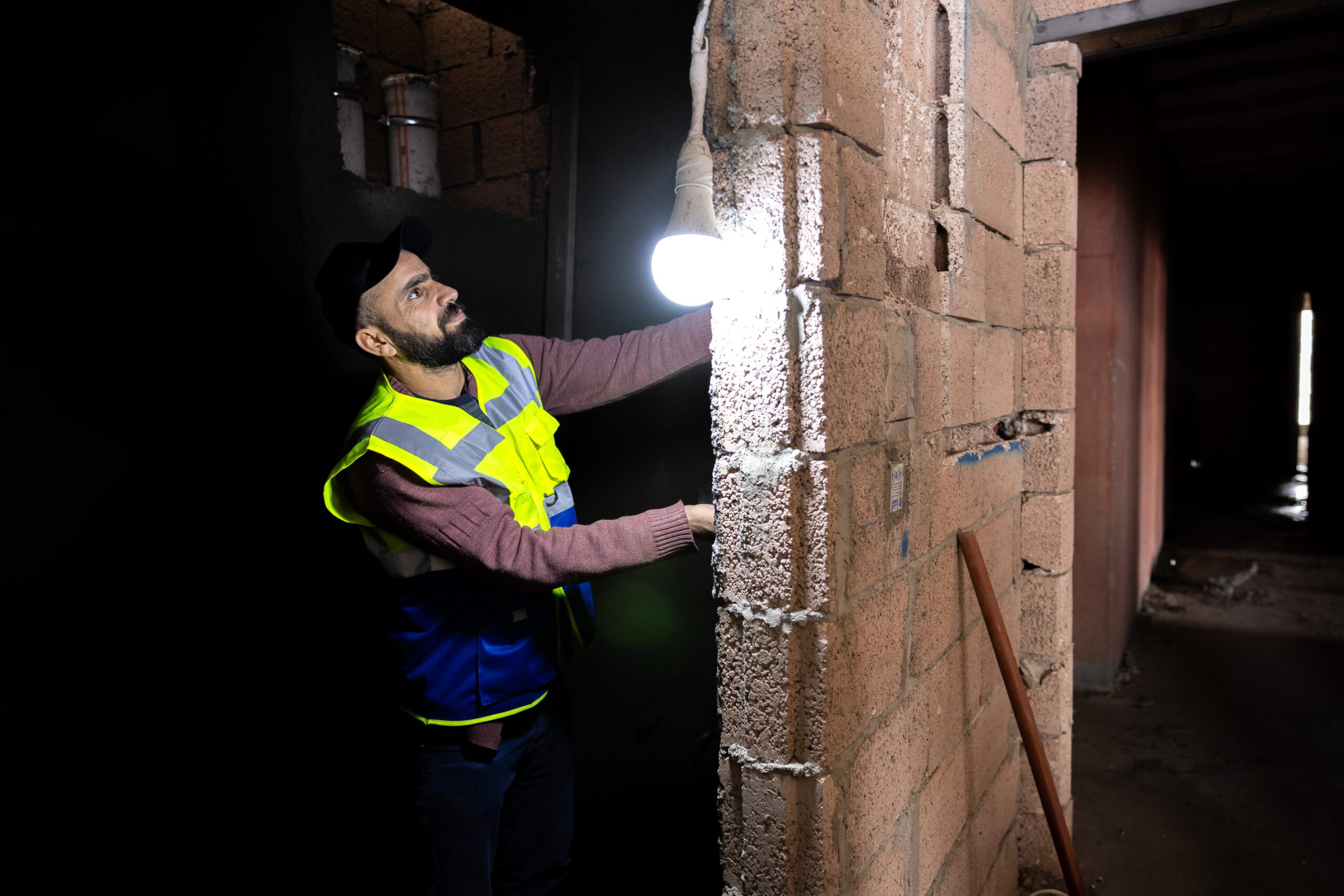
Livelihoods and Economic Inclusion
Expanding refugee self-reliance is an objective of the Global Compact on Refugees’. It is also integral to the overarching aim of leaving no one behind under the 2030 Sustainable Development Agenda.
Refugees in Iraq represent approximately 1% of the total working-age population. Facilitating their access to decent work and economic opportunities allows them to become self-reliant while enabling them to contribute to the local economy. When refugees can work without discrimination in the local market, they contribute as employers, employees, and consumers.
UNHCR’s role in promoting refugee livelihoods and economic inclusion focuses on promoting a conducive legislative and regulatory environment, improving refugee access to decent work and key social protection mechanisms; and contributing to increased access to skills development and lifelong learning offering refugees a greater ability to participate and contribute to the local economy.
UNHCR works with a range of stakeholders and partners to support refugee livelihoods, including access to skills development, training and entrepreneurship programmes. UNHCR plays a catalytical role by supporting relevant stakeholders to include refugees in their services and programmes.
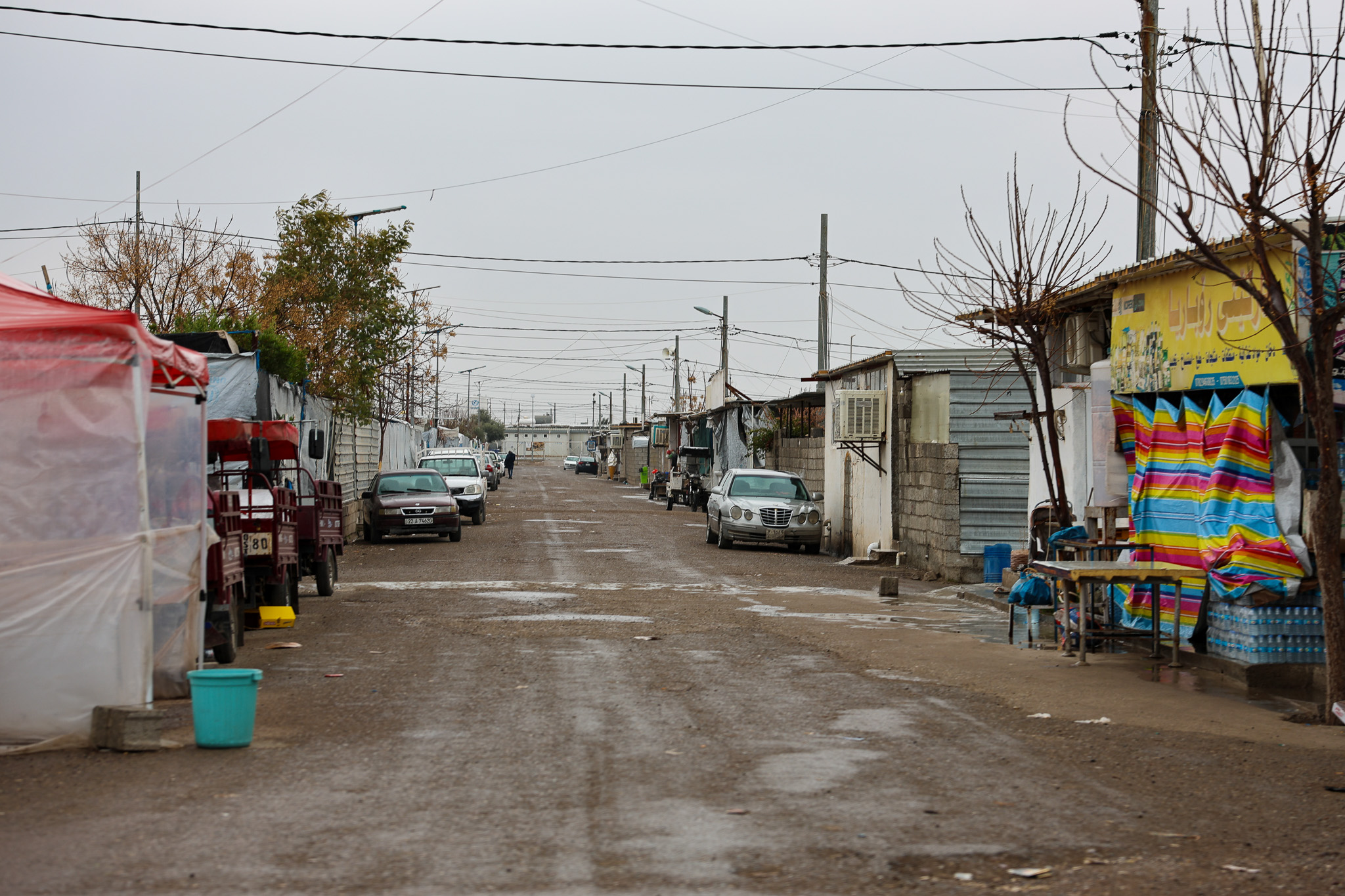
Refugee Camp Transformation
Iraq currently has nine refugee camps, all of which are located in the Kurdistan Region of Iraq. Most were established over a decade ago following the arrival of refugees from Syria from 2011. Some 35 percent of refugees currently live in camps in Iraq, while the remainder live in towns and cities in urban areas.
The provision of services and assistance by UNHCR to refugees living in camps has changed significantly since the beginning of the Syria crisis. While UNHCR initially focused on providing shelter and life-saving assistance such as health care, UNHCR now focuses on supporting refugees to access public services and promoting their self-reliance. In a number of refugee camps, local municipalities have taken on responsibility for delivering services, such as providing electricity, water and facilitating garbage collection in the camps.
In 2025, UNHCR is planning to support the transition away from a humanitarian camp management approach to local authority ownership of selected refugee camps in a managed process that can be monitored, supported, and allows identification of key steps and lessons learned that can then be utilised to support transition of other camps in the future. This approach will be closely coordinated with the Ministry of Interior in the Kurdistan Region of Iraq, through UNHCR’s partnership with the Joint Crisis Centre.
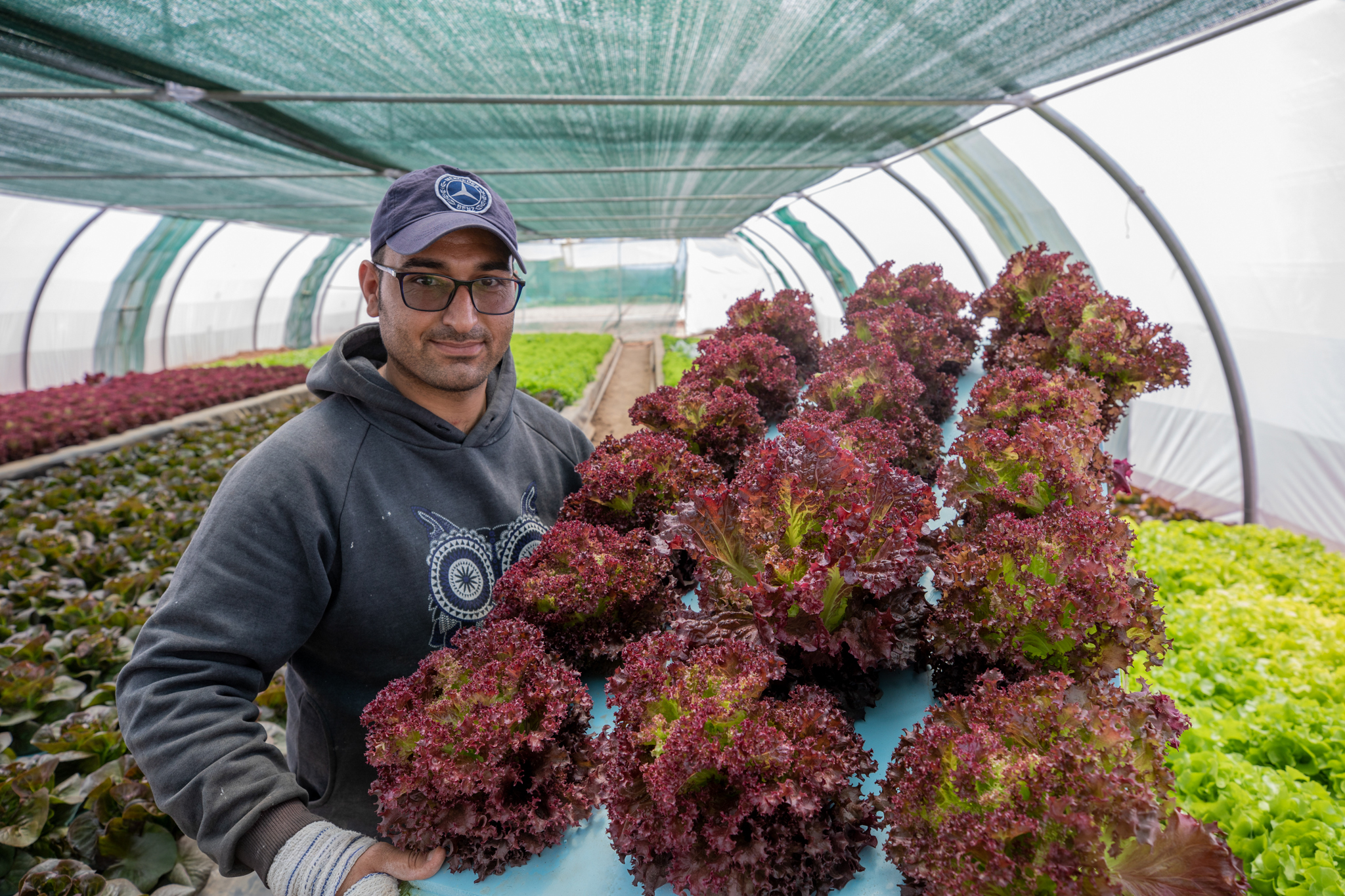
Inclusion of Refugees in National Social Protection Systems
In 2024, UNHCR rolled out a new targeting approach for its cash assistance programme based on socio-economic vulnerabilities of refugees and asylum seekers. These changes were partly implemented to align UNHCR’s cash programming more closely with the criteria of the national Social Safety Net (SSN). UNHCR continues to advocate for and works with the Government of Iraq, humanitarian and development actors to support refugee inclusion in national social protection systems, emphasizing the importance of the re-establishment of the SSN in the Kurdistan Region of Iraq.
At the same time, UNHCR is working with the World Bank to roll out a pilot of the Social Safety Net in the Kurdistan Region of Iraq, specifically central Dohuk, that includes refugees and asylum seekers. This pilot, which will be led by the Governorate of Dohuk alongside Ministry of Labour and Social Affairs is due to start in mid-2025 and will play a pivotal role in establishing the SSN system into the Kurdistan Region of Iraq.
